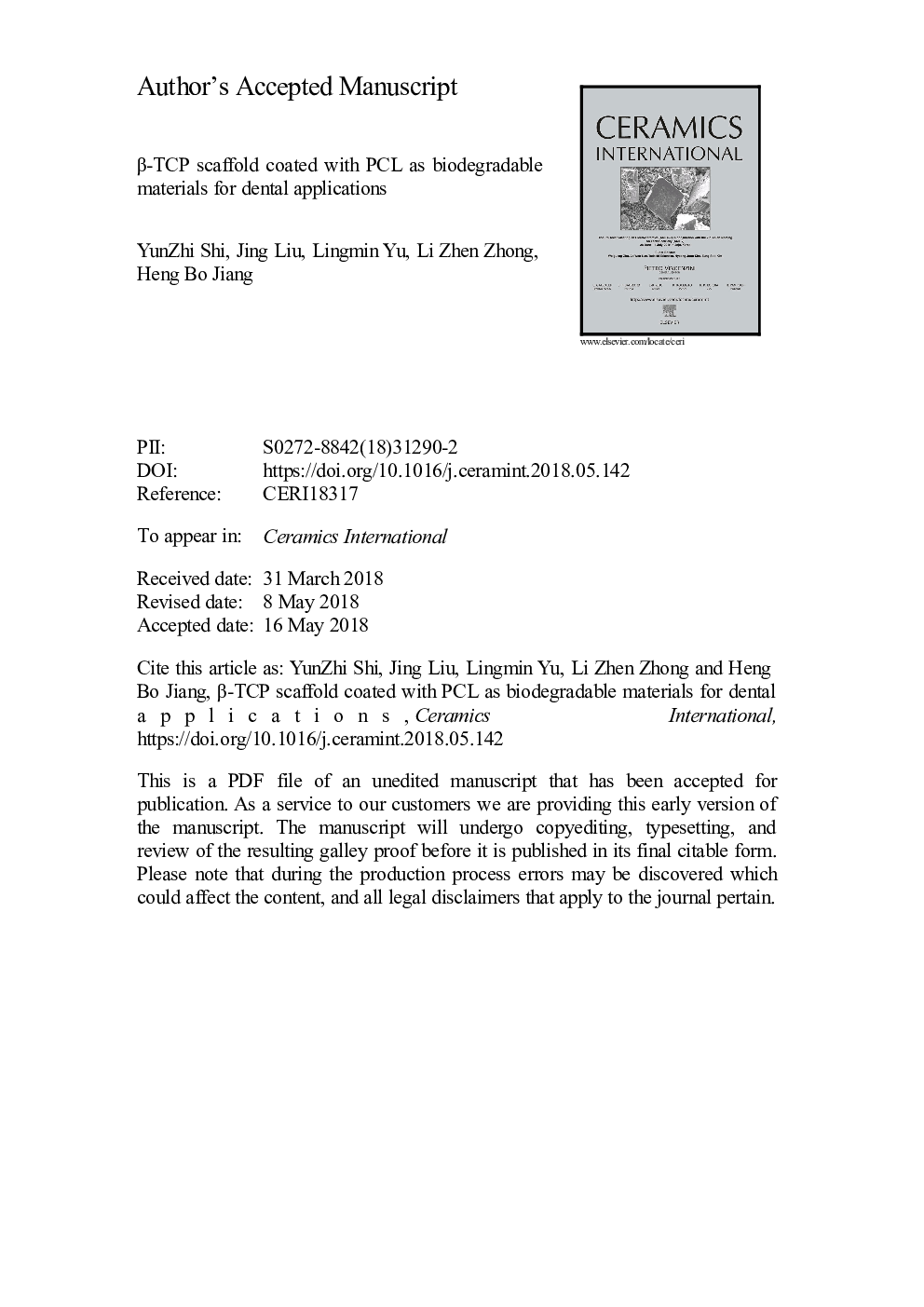| Article ID | Journal | Published Year | Pages | File Type |
|---|---|---|---|---|
| 7886036 | Ceramics International | 2018 | 24 Pages |
Abstract
Requirements for an ideal scaffold include biocompatibility, biodegradability, mechanical strength and sufficient porosity and pore dimensions. Beta tricalcium phosphate (β-TCP) has competent biocompatibility and biodegradability, but has low mechanical strength because of its porous structure. Polycaprolactone (PCL) is a biodegradable polymer with elastic characteristics and good biocompatibility. In this study, β-TCP/PCL composites were prepared in different ratio and their morphology, phase content, mechanical properties, biodegradation and biocompatibility were investigated. After coating, surfaces of β-TCP scaffolds were covered with the PCL while some of the pores were partially clogged. The compression and bending strength of β-TCP scaffolds were significantly enhanced by PCL coating. The degradation rate of the scaffold in Tris buffer was reduced with higher content of the PCL coating. MTT and ALP assays showed that the osteoblast cells could proliferate and differentiate on PCL coated scaffolds as well as on bare β-TCP scaffolds. Based on the comprehensive analysis achieved in this study, it is concluded that the β-TCP/PCL composite scaffold fabricated with 40% β-TCP and 5% PCL exhibits optimum properties suitable for dental applications.
Related Topics
Physical Sciences and Engineering
Materials Science
Ceramics and Composites
Authors
YunZhi Shi, Jing Liu, Lingmin Yu, Li Zhen Zhong, Heng Bo Jiang,
